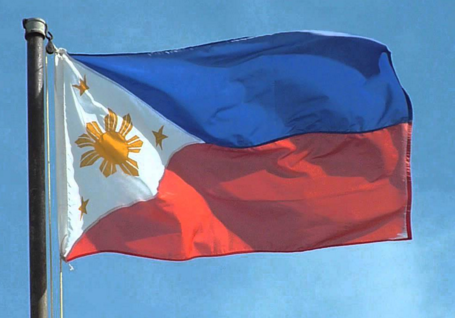
May 25, 2017 | News
The Philippine government must ensure that human rights are protected and respected in Mindanao, in light of the yesterday’s declaration of martial law and suspension of the writ of habeas corpus, the ICJ said today.
The ICJ reminds the Philippine government that it remains responsible for upholding its international human rights legal obligations, notwithstanding the imposition of martial law.
The ICJ also calls upon the Congress and, if engaged, the Supreme Court, to exercise their oversight authority to ensure that the declaration is necessary and lawful, and that the activities conducted under martial law respect human rights.
“The suspension of the writ of habeas corpus, which is vital for protecting the right to liberty and preventing torture, ill-treatment and enforced disappearance, must be lifted immediately,” said Frederick Rawski, ICJ’s Regional Director for Asia and the Pacific.
Rawski added, “The provision of the Philippine Constitution providing for the possibility of suspension of the writ of habeas corpus is in contravention of international law, and denying the right to challenge the lawfulness of a detention is incompatible with recognized principles of the rule of law.”
President Rodrigo Duterte declared martial law on the evening of 23 May 2017, covering the island of Mindanao, after Maute, an armed group that had pledged allegiance to the Islamic State of Iraq and the Levant (ISIL), reportedly laid siege on Marawi City. The next day, 24 May 2017, President Duterte suspended the writ of habeas corpus.
The ICJ recalls that the right to challenge the lawfulness of one’s detention through habeas corpus or similar procedures must always be available, even under states of exception like martial law.
The ICJ calls on the Philippine government to establish a clear timetable for an end to martial law, and to ensure in the interim that human rights are fully protected.
Background
Under Article VII, Section 18 of the 1987 Philippine Constitution, the President may declare martial law or suspend the privilege of the writ of habeas corpus in case of invasion or rebellion and only “when the public safety requires it.” However, Article VII, Section 18 of the 1987 Constitution limits a declaration of martial law to 60 days, and imposes other important limitations – including that the President of the Philippines must submit a report to Congress within 48 hours, which may then revoke the suspension or declaration.
Any citizen may petition the Supreme Court to review the sufficiency of the factual basis of the proclamation of martial law, or the suspension of the writ of habeas corpus. Finally, this provision of the Constitution also provides that in the case of a suspension of the writ of habeas corpus, any arrested or detained person must be judicially charged within three days, or be released.
Contact
Emerlynne Gil, ICJ’s Senior International Legal Adviser for Southeast Asia, email: emerlynne.gil(a)icj.org tel: +66 840923575.
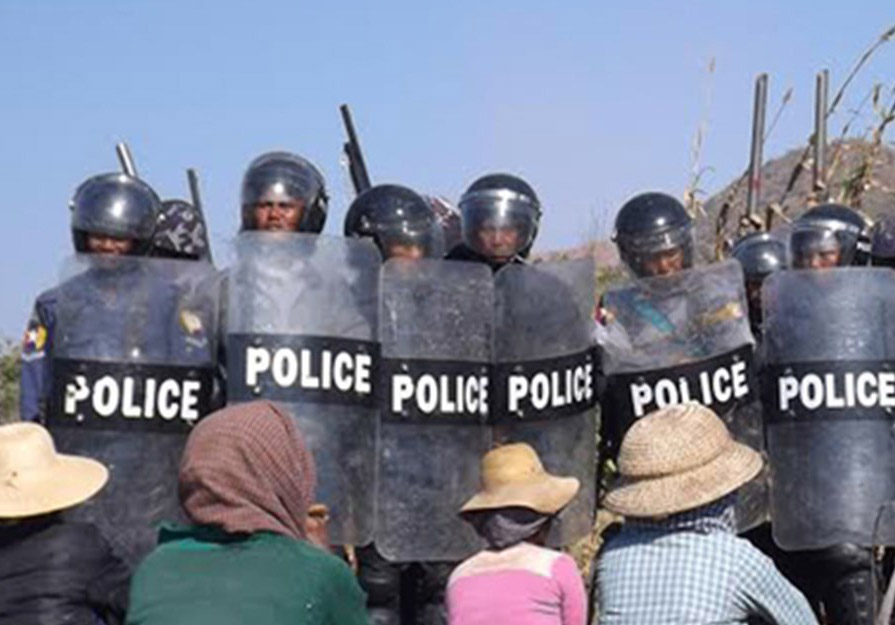
May 25, 2017 | News, Op-eds
An opinion editorial by Daniel Aguirre, ICJ Legal Adviser in Myanmar.
Burma’s 2016 Investment Law and the implementing Investment Rules issued in April 2017 create space for the government and civil society to facilitate responsible investment and exclude investors that have track records of environmental destruction and human rights abuses.
This means that affected individuals and communities must now test Burma’s commitment to the rule of law.
There are new opportunities for civil society to use law to hold them accountable. In this regard, both international law and Burma’s constitution guarantee access to justice for rights abuses.
The Investment Rules instruct the Myanmar Investment Commission (MIC) to consider whether investors have demonstrated a commitment to responsible investment. In considering the good character and reputation of the investor, the MIC may study whether the investor or any associate with an interest in the investment broke the law in Burma or any other jurisdiction.
The rules explicitly mention environmental, labor, tax, anti-bribery and corruption or human rights law.
What this means is that if an investor is determined to have committed a crime, has violated environmental protection standards or was involved with human rights abuses, the MIC should not grant it a permit.
If such a company applies for an investment permit, civil society should bring its record to the attention of the MIC and advocate for the rejection of a permit.
Successive governments in Burma have focused on increased investment to develop the country and improve its people’s standard of living.
At the same time, human rights and environment proponents from civil society have opposed many investment projects, citing the impact on the environment and human rights of local communities.
They complain that land rights are not adequately protected, that environmental impact assessments are not implemented and that they lack access to justice for corporate human rights abuses.
There are challenges to using the law to protect human rights in Burma.
Disputes related to business activity are often considered sensitive political matters in which the courts are unable or unwilling to intervene.
They are reluctant to review crucial decisions of administrative bodies or to hold rights abusers accountable.
But community activists, human rights defenders and lawyers have increased opportunities to pressure the courts to apply the law and should do so.
Lawyers have an important role in protecting human rights by representing local communities.
Courts must become a venue to challenge administrative decisions that allow for irresponsible investment that does not comply with national law, and where appropriate, obtain remedies and reparations for victims of human rights violations.
The Investment Law and its rules, which govern both local and foreign investment except within special economic zones, provide legal guarantees for investors to access information and protections against expropriation including compensation and access to due process if changes in regulation affect their business.
Investors can also access long-term rights to use land.
Civil society should help to ensure that only responsible investors benefit from these protections.
According to the law, the MIC is the gatekeeper that issues permits and endorsements for many would-be national and international investments likely to cause a large impact on the environment and local community.
In order to ensure that the protective aspects of the law are effective, courts must have some power of review, at least to ensure that administrative bodies, such as the MIC, are acting reasonably and in accordance with the law, while respecting and protecting human rights.
If the MIC grants permits for companies that do not meet the requirements outlined in the Investment Rules, their decisions must be subject to review by the judiciary.
Burma’s courts have the authority to review administrative decisions, particularly through the application of constitutional writs.
Lawyers can use the writs of mandamus and certiorari to secure the performance of public duties and quash an illegal order already passed by public bodies such as the MIC.
This would help ensure the MIC uses its mandate to prevent irresponsible investment.
Likewise, investors that fail to respect human rights or unlawfully cause damage to the environment must be held accountable; but there are few options to do so in Burma.
Criminal prosecutions against companies, actions imposing administrative sanctions, and civil suits face a variety of procedural hurdles, particularly if involving joint ventures with state run enterprises.
For example, a negligence civil suit brought by villagers against the Heinda tin mine in Dawei District was unsuccessful because the 1909 Limitations Act demands complaints to be brought within one year of damage.
Section 80 of the Civil Procedure Code requires prior notice and the names of plaintiffs to be given to the government two months before filing a suit against the government and allows small procedural defects to preclude a claim.
Lawyers are sometimes unfamiliar with these procedures and communities are reluctant to put their names to such cases fearing reprisals.
Clearly there are significant challenges to ensuring that investment in Burma does not adversely affect human rights.
To overcome these, civil society and lawyers must engage the administration—the MIC—to ensure only responsible investments is permitted and start to use the judiciary to review its actions.
Likewise, cases must continue to be taken against investors that abuse human rights and harm the environment.
Powerful investors must be constrained by the confines of the law, including human rights law.
Unless civil society and lawyers can use the legal framework to address these concerns, Burma’s judicial system is unlikely to develop; lawyers will not gain valuable experience and the public will remain distrustful.
The process is long and arduous but necessary to protect human rights and the environment from irresponsible investment.
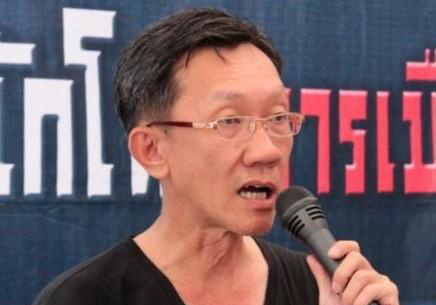
May 4, 2017 | News
Thailand should immediately end the practice of arbitrarily detaining persons in unofficial places of detention said the ICJ today.
The statement came after it was revealed that human rights lawyer, Prawet Prapanukul, who had been arbitrarily detained for five days at a detention facility inside a military base in Bangkok, finally appeared and was charged at the Bangkok Criminal Court on 3 May 2017.
During the morning of 29 April 2017, military officers invoked Head of National Council for Peace and Order (NCPO) Order 3/2015 to arrest Prawet Prapanukul and search his residence in Bangkok, seizing a number of items located at the property including computers, phones and hard-drives.
The whereabouts of Prawet Prapanukul were unknown until the afternoon of 3 May 2017, when Prawet Prapanukul contacted several lawyers including Thai Lawyers for Human Rights (TLHR) and said he had been held at the Nakhon Chaisri temporary remand facility inside the 11th Army Circle military base in Bangkok.
“Prawet Prapanukul’s five-day incommunicado detention without being brought before the courts or access to legal counsel amounts to an arbitrary detention in violation of his rights under international law and consequently he should be provided with appropriate reparation,” said Kingsley Abbott, the ICJ’s Senior International Legal Adviser for Southeast Asia.
“To ensure the protection of all persons while in detention, Thailand has a duty to detain people in officially recognized places of detention, to have their names and places of detention made available to interested persons and to bring them before a court without delay within 48-hours,” he added.
According to TLHR, on 3 May 2017, Prawet Prapanukul was charged with ten counts of the highly restrictive crime of lese majeste (article 112 of the Criminal Code), three counts of a sedition-like offence (article 116 of the Criminal Code), and violation of article 14(3) of the Computer Crime Act.
The ICJ has previously raised concerns about abusive recourse to these laws.
Pursuant to article 91(3) of the Thai Criminal Code, it is possible that, if convicted of these charges, Prawet Prapanukul could receive a maximum sentence of 50-years imprisonment.
“Freedom of expression, as protected under international law, must never be criminalized. In any event, imprisonment is never a proportionate penalty for the exercise of free expression, let alone the unthinkable possibility of 50-years, which would set a new recorded record for a sentence for lese majeste,” Abbott said.
On 25 April 2017, after reviewing Thailand’s compliance with its obligations under the International Covenant on Civil and Political Rights (ICCPR), to which Thailand is a State Party, the Human Rights Committee, the international expert body charged with supervising the implementation of the ICCPR, issued its Concluding Observations in which it noted that in Thailand “individuals were reportedly often detained without charge and held incommunicado at undisclosed places of detention for periods of up to seven days, with no judicial oversight or safeguards against ill-treatment and without access to a lawyer.” The Human Rights Committee observed that Thailand should immediately release all victims of arbitrary detention and provide them with full reparation.
“The fact that Thailand arbitrarily detained Prawet Prapanukul at a military facility just five days after the Human Rights Committee issued its Concluding Observations criticizing Thailand’s practice of detaining people incommunicado in undisclosed placed of detention demonstrates a worrying contempt for its international human rights obligations as pointed out by the Committee,” Abbott added.
Contact
Kingsley Abbott, ICJ Senior International Legal Adviser for Southeast Asia, t: +66 94 470 1345 ; e: kingsley.abbott(a)icj.org
Thailand-Prapanukul-detention-News-2017-ENG (full text with background, in PDF)
Thailand-Prapanukul-detention-News-2017-THA (Thai version, in PDF)
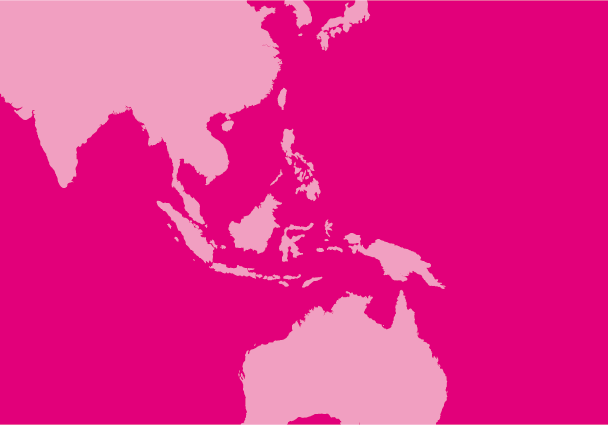
Apr 26, 2017 | News
The ICJ today condemned the conviction and sentencing of Siti Noor Aishah Atam for possessing twelve books allegedly associated with terrorist groups, an act which is criminal under Malaysia’s Penal Code.
The ICJ calls for her immediate release from detention and for the authorities to take steps to quash or reverse her conviction.
The Kuala Lumpur High Court found Siti Noor Aishah Atam guilty under Section 130JB(1)(a) of the Penal Code which prohibits any “possession, custody or control of any item associated with any terrorist group or the commission of a terrorist act” and sentenced her to five years of imprisonment.
Siti Noor Aishah Atam contended that she was using the supposedly proscribed books for her thesis as a graduate student at Universiti Malaya, where she majored in Islamic Studies.
The High Court indicated, however, that they were applying the standard of strict liability to this case, meaning that the particular reason a person may have of possessing the books should not be taken into account.
If a person is found to have these books in their possession, for whatever reason, he or she will be penalized under the provision.
“The prosecution and conviction of Siti Noor Aishah Atam by Malaysian authorities is a violation of her right to freedom of expression, which includes the right to seek, receive, and impart information,” said Emerlynne Gil, ICJ’s Senior International Legal Adviser for Southeast Asia.
The ICJ notes that while the right to freedom of expression is not absolute, any restriction must be provided by law and be strictly necessary for a limited number of purposes, such as national security.
Any restriction must also be formulated with sufficient precision to enable an individual to regulate his or her conduct accordingly.
“The law under which Siti Noor Aishah Atam had been convicted is overly vague, since nobody would know what books or other material would be impermissible. The law is also certainly overbroad – having the effect of preventing potentially important academic research,” said Gil.
The twelve books found in the possession of Siti Noor Aishah Atam have not been specifically banned by the Malaysian government.
Indeed, these books may easily be bought at any number of bookstores in the country.
This unjust verdict illustrates the need for urgent legal reform, including the repeal or modification of Section 130JB(1)(a) of the Penal Code.
The ICJ also noted with profound concern that Siti Noor Aishah Atam has been subjected to prolonged detention under multiple laws, namely the Security Offences (Special Measures) Act 2012 (SOSMA) and Prevention of Crime Act 1959 (POCA).
“The Malaysian authorities appear to be abusing SOSMA and POCA by invoking them alternately to keep Siti Noor Aishah Atam in detention. This constitutes a denial of her right to be free from arbitrary detention,” Gil said.
The ICJ had previously called for the abolition of SOSMA, POCA, and similarly abusive laws.
Contact:
Emerlynne Gil, ICJ’s Senior International Legal Adviser, t: +66 840923575 ; e: emerlynne.gil(a)icj.org
Background
Siti Noor Aishah Atam is a former graduate student at Universiti Malaya, majoring in Usuluddin (Akidah) or Islamic Studies.
On 22 March 2016, the police raided the residence of Siti Noor Aishah Atam and arrested her.
She was taken into custody and detained for 28 days under SOSMA at an undisclosed detention facility while her trial was ongoing.
On 25 July 2016, she pleaded not guilty and stated that the books were used for her thesis on terrorism.
On 29 September 2016, the Kuala Lumpur High Court acquitted Siti Noor Aishah Atam.
The High Court had pointed to the Ministry of Home Affairs’ failure to ban the twelve books as one of the key reasons behind the acquittal.
On the day of her acquittal, she was again arrested and detained under POCA for 60 days and was subsequently ordered to be put under house arrest for two years.
In March 2017, the prosecution appealed the High Court’s decision. This allowed authorities to subject Siti Noor Aishah Atam to continued remand under SOSMA.
She was then detained in Kajang Prison until her conviction and sentencing today.
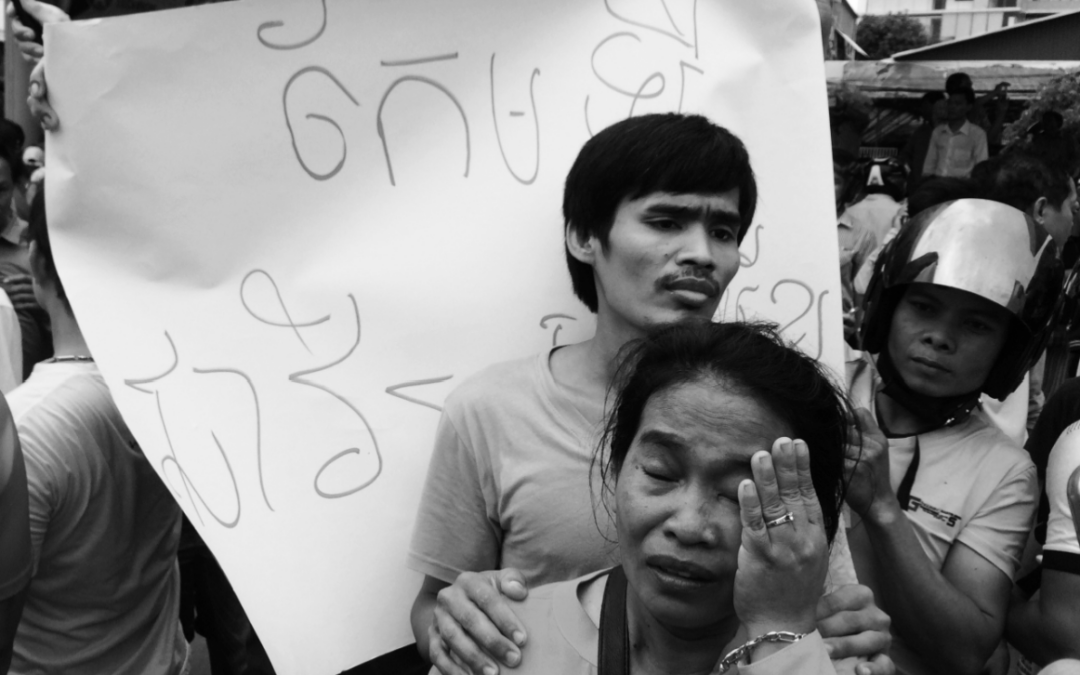
Mar 23, 2017 | News
Cambodia should continue to investigate the killing of prominent political commentator Kem Ley in order to address key aspects of the case that appear to have been inadequately investigated, said the ICJ, Amnesty International, and Human Rights Watch today.
On 23 March 2017, the Phnom Penh Municipal Court found Oeuth Ang guilty of the premeditated murder of Kem Ley on 10 July 2016 and sentenced him to life imprisonment.
Prior to the half-day trial, which took place on 1 March 2017, the authorities released almost no information about the investigation.
“The trial revealed that the investigation appeared to be deficient in several important respects,” said Kingsley Abbott, the ICJ Senior International Legal Adviser who observed the trial.
“Until there is an independent, impartial and effective investigation to establish whether anyone else was involved in the killing, the victims of this serious crime, including Kem Ley’s wife and children, will be unable to obtain justice,” he added.
Even the very identity of the defendant was at issue. At trial, Oeuth Ang maintained he is 39-years-old, unmarried, and named “Chuob Samlab” – which translates in English as “Meet to Kill” – from Banteay Meanchey province.
However, the prosecutor submitted that based on the fingerprint on the ID card of Oeuth Ang, he is satisfied that the defendant is in fact Oeuth Ang, married, born in 1972, from Siem Reap province.
“The proceedings may have established that Oeuth Ang pulled the trigger, but the investigation does not seem to have considered whether someone else loaded the gun,” said Champa Patel, the Amnesty International Director for Southeast Asia and the Pacific. “It is clear that the authorities want to close the book on this case and move on but failures in the investigation of this heinous act can only serve to compound the injustice already suffered by the family of Kem Ley”.
The hearing commenced at 8:40 and concluded at 13:00. After Oeuth Ang gave evidence, ten witnesses gave oral testimony including two Caltex workers, seven officials who were involved in the investigation in different capacities, and a doctor who examined Kem Ley’s body at the scene of death.
Official reports and the statements of several witnesses were also read into evidence, and the prosecution played eight videos from different locations, including one captured by a closed circuit television (CCTV) camera inside the Caltex station where Kem Ley was killed.
Kem Ley’s widow, who was named as a civil party, did not appear at the trial but her civil party statement was read into evidence.
“The authorities’ failure to investigate so many clear gaps in the defendant’s story and the court’s unwillingness to examine them suggest that a quick conviction rather than uncovering all involved was the main concern,” said Phil Robertson, Deputy Asia Director at Human Rights Watch. “Kem Ley’s family have been outspoken in their disbelief that Oeuth Ang was solely responsible for the murder, and the trial’s conduct lends credence to their skepticism.”
Contact
Kingsley Abbott, ICJ Senior International Legal Adviser for Southeast Asia, t: +66 94 470 1345 ; email: kingsley.abbott(a)icj.org
Cambodia-KemLey Verdict-News-Press releases-2017-ENG (full story, in PDF)
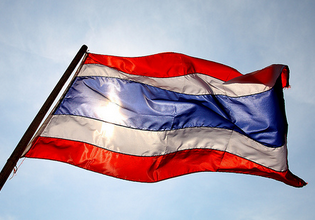
Mar 9, 2017 | News
Amnesty International and the ICJ regret the decision of Thailand’s National Legislative Assembly (NLA) to further delay the passage of essential legislation criminalizing torture and enforced disappearances.
Our organizations call on the Thai government to cease its stalling measures and instead prioritize the amendment of the Draft Prevention and Suppression of Torture and Enforced Disappearance Act (Draft Act) in order to bring it into line with international law. The government should then ensure its passage into law without undue delay.
On 28 February, the Office of the High Commissioner for Human Rights announced that it had been informed that the NLA would not enact the Draft Act. The following day, an NLA official speaking to BBC Thai confirmed that the draft would be “returned [to the Thai Cabinet] for more consultations… with Interior officials, police authorities, the national security sector, military authorities and prosecutors.”
The Draft Act is the result of years of effort by government authorities, including by Ministry of Justice officials who consulted with our organizations and took account of many of our recommendations in elaborating it. The draft was approved by Thailand’s Cabinet in May 2016.
The recent decision by the NLA has indefinitely delayed the enactment of this important piece of legislation, which would represent a significant step towards preventing torture and enforced disappearances in Thailand.
The slow-tracking of this law in the face of all the commitments Thailand has made over the years right up to last year is extremely disappointing, especially for the victims of torture and enforced disappearances who have struggled to obtain justice in the absence of a clear legal framework.
The most recent version of the Draft Act addresses many existing gaps in Thailand’s current legal framework and could support Thailand’s compliance with its obligations under international human rights law. However, further amendments are needed to address significant shortcomings in the Draft Act.
In particular, the Draft Act omits key elements from the definitions of torture and enforced disappearances, does not criminalize acts of cruel, inhuman or degrading treatment, and fails to define enforced disappearance as a continuing crime. Additionally, the Draft Act does not extend criminal liability beyond the direct commission of the act and fails to unequivocally bar the use as evidence in court proceedings of statements obtained by torture.
Thailand should make it a top priority to address these and other concerns and to enact the law as soon as possible. The urgent need to amend and enact the Draft Act is underscored by recent reports alleging the use of torture and other ill-treatment by state security forces and the continued failure to hold accountable perpetrators of torture, other ill-treatment and enforced disappearances.
Our organizations remain committed to providing any necessary assistance to the Thai government in amending the Draft Act or otherwise acting to prevent torture and enforced disappearances in Thailand.
Background
Thailand is a state party to the International Covenant on Civil and Political Rights (ICCPR), the Convention against Torture and other Cruel, Inhuman or Degrading Treatment or Punishment (CAT), and has signed, but not ratified, the International Convention for the Protection of All Persons from Enforced Disappearance (ICPPED).
The expert UN bodies overseeing the implementation of these treaties have consistently called upon states parties to criminalise torture and enforced disappearance as specific crimes.
On 13 and 14 March 2017, the UN Human Rights Committee will review Thailand’s compliance with the ICCPR.
In Thailand’s 15 November 2016 reply to the Committee’s List of Issues,[1] it noted that it was in the process of passing the Draft Law which would “provide clear definition and set up specific offence on torture to be in line with the terms set forth under CAT” and “serve as an implementing legislation for ICPPED.”
It also noted that the Draft Act “aims to strengthen the prevention, suppression, and prosecution mechanism and to ensure remedy for victims as well as address the problem of misuse, and abuses of power by government authorities with regard to torture and enforced disappearances.”
It concluded by noting that “[o]n 24 May 2016, the Cabinet approved the draft Act in principle. The draft has been reviewed by the Council of State and is currently waiting to be submitted to the legislative branch for consideration.”
[1] Human Rights Committee, “Replies of Thailand to the List of Issues,” U.N. Doc. CCPR/C/THA/Q/2/Add.1, para 51.
Thailand-Joint Statement-Torture Legislation-News-2017-ENG (Press release in PDF)
Contact
Kingsley Abbott, Senior International Legal Adviser for Southeast Asia, Tel: +66 94 470 1345, E-mail: Kingsley.abbott(a)icj.org










